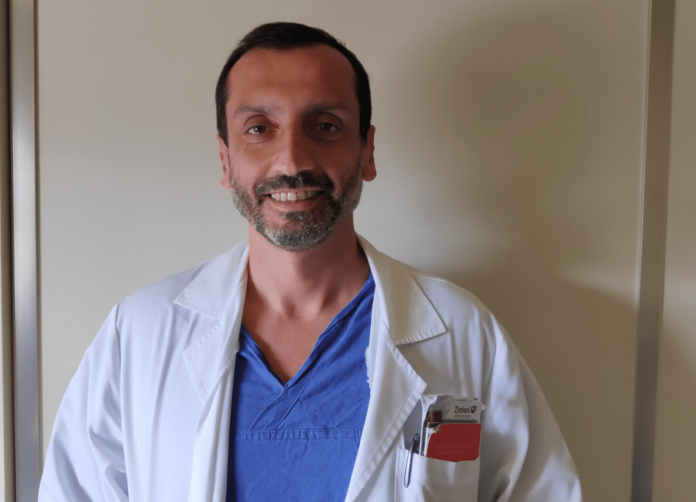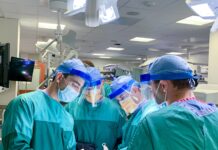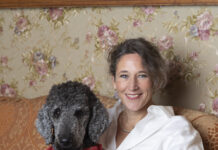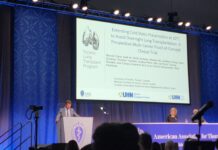Prof. Henrique Alexandrino views medical simulation programs as fundamental educators in medical schools. He encourages young medical students and residents to derive perfection in their clinical skills. He also encourages them to implement their technical and educational knowledge by utilizing medical simulation programs at their finest. Back in the days when Prof. Henrique was a medical student, the medical simulation program didn’t exist.
Prof. Henrique Alexandrino Wanted More than Medical Knowledge
After 6 years of medical school, Prof. Henrique Alexandrino graduated with massive figures of information and knowledge in his mind. Later, he was introduced to the real-life clinical setting. By the end of 6 years, a medical student gathers endless knowledge but all the knowledge is insignificant if clinical skills are not competent. Soon, he realized the significance of clinical skills and previous exposure for real clinical events. During his two-year internship, he realized that everything he had learned so far was not enough. He wanted to become an accomplished doctor both knowledge and clinical skills are compulsory. Since then he has been adamant about the role of a medical simulating program in the medical journey of every medical student.
In real-life clinical practice, this knowledge is not enough. You need to have clinical skills and previous exposure to the situation.
Prof. Henrique Alexandrino
In the first year of general surgery residency, Prof. Alexandrino conducted his first medical simulation program globally known as Advanced Trauma Life Support (ATLS). It is the most basic simulation program which serves as the mother of all courses. This simulation-based course provided him with the opportunity to become a well-known instructor.
Introduction to Educational Science
His keen interest and devotion to this course titled him an identified and certified instructor of the Advanced Trauma Life Support (ATLS).
The ATLS course, introduced Prof. Alexandrino to educators. According to him, educators are personalities who teach how to teach. Meeting educators and learning the science of teaching exposed him to new dimensions of medicine and surgery. Educational science, which is the art of teaching, planted in him the desire to become a motivated medical instructor. Previously, he believed teaching is simply passing on something you know already. Contacts with educators changed Prof. Alexandrino’s assumption about teaching. Soon after realization, he grasped the phenomenal idea behind educational science and incorporated it into his instruction lessons of ATLS. As an instructor of ATLS, he was moved by the power of simulation. Simulation has the power to change behaviours, develop skills and ensure the implementation of learned skills in real-life clinical scenarios.
Teaching is a science – educational science.
Prof. Henrique Alexandrino
European Trauma Course – Breakthrough for Prof. Henrique Alexandrino
Prof. Henrique Alexandrino availed the opportunity of working in other courses too. European Trauma Course proved as a breakthrough in this career. This course is much more advanced than ATLS and highly simulation-based. European Trauma Course employs realistic clinical scenarios where everyone is involved in working as if in real life. The presence of a mannequin does not interfere with the sensitivity of the situation. Medical students and young doctors work as concerned as they would be with a real patient. They remain not only focused but also aware of the possible outcomes clinically. This course contributed to Prof. Alexandrino’s teaching potential, especially in debriefing about the simulation. In that situation, debriefing is the key to compelling a medical student to find lessons from the set-up scenario.
It is one of the most enjoyable courses I can do as a student and one of the most hard-working courses as an instructor. Instructors get there one hour before the participants and leave one hour after the participants.
Prof. Henrique Alexandrino
Ideology of Medical Simulation
The whole ideology behind the medical simulation program is to train medical students to learn and remember clinical skills. Hence, the better a medical student learns the more it is beneficial for the patients.
Initially, a medical student steps into the world of medicine and surgery with high motivation and multiple inspirations. In the same way, they have goals and dreams that need a lead of passion. There are multiple times when a student is hopeless. Subsequently, they lose their driving power and doubt their potential, ideas and choice of becoming a doctor. Prof. Henrique Alexandrino, a successful general surgeon today, also went through a motivational crisis in his student and professional life. He makes it out of crisis only because his field and his speciality is his passion.
Prof. Henrique Alexandrino
Follow your passion. In every speciality there are problems, it is not a bed of roses. There are days when you feel terrible. After a long shift, after a long night, it is the passion which makes you feel accomplished.




